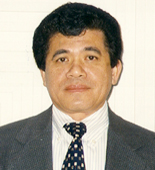US Immigration |
|||||||
| Posted 5/14/2009 | |||||||
| LEGAL NOTES / By REUBEN S. SEGURITAN | |||||||
Nursing Relief Act of 2009 |
|||||||
|
|||||||
|
This proposed bill was a rehash of the Nursing Relief Act of
2007 (H.R. 1358) that was introduced by the same congressmen.
Unfortunately, this proposed bill failed to become a law. It
remains to be seen whether the reintroduced bill will pass
legislative muster. The reintroduction of the Nursing Relief Act of 2009 reinforces the continued clamor for more visas for nurses. |
|||||||
|
The
stated findings and purpose of
this Act recognize that despite
the economic doldrums and rising
unemployment in the country,
there remain more vacant nursing
positions in the U.S. than there
are qualified registered nurses
to fill those positions. The
nursing shortage exceeds 126,000
according to the Department of
Labor. The Act further states that the current immigration law does not meet the requirements of health care providers and major hospitals for qualified nurse staffing. States in the West and Southwest are the most affected by the inability to meet health care needs due to their rising population and the shortage of registered nurses. It recognizes that foreign countries such as the Philippines, India and China are good sources of qualified nurses to meet this demand. |
 |
||||||
|
|
|||||||
|
|
|||||||
|
Hundreds of millions of dollars are spent every year by the major hospital systems in recruiting foreign nurses under the current immigration system and this cost is passed on to the consumers. With the current retrogression in the employment-based third preference (EB-3) category, it takes several years to bring in a registered nurse on an immigrant visa. The April 2009 Visa Bulletin shows that the EB3 category has retrogressed to March 1, 2003. The Act seeks to address these concerns by creating a separate non-immigrant visa category for registered nurses to engage in temporary work as a professional nurse. Employers sponsoring non-immigrant visas will be required to make attestations that they will offer the foreign nurse the actual wage paid to similarly situated employees or the prevailing wage for the position; that working conditions and pay of U.S. nurses will not be adversely affected by the hiring of a foreign worker; that there is no strike or lockout at the worksite and that the notice of filing of labor certification was given to the bargaining representative, if any, and posted in a conspicuous place in the worksite. Several bills have already been introduced in the past several years to address the nursing shortage, all to no avail. For instance, last April 20, H.R. 5924, also known as the Emergency Nursing Supply Relief Act was sponsored by Rep. Robert Wexler (D-Florida) and Rep. James Sensenbrenner (R-Wisconsin) but it never became a law. Despite an uphill battle to garner legislative support, we remain hopeful that the Nursing Relief Act of 2009 and other bills seeking to address the severe nursing shortage in the U.S. would get passed considering that health care is one of the priorities that need to be addressed by the current administration.
|
|||||||
|
|||||||
|
Terms of Use. Privacy Policy. Disclaimer.
|





 has been practicing law for over 30 years and is included in the Marquis Who’s Who in American Law. A former law editor and professor, he is also the author of a book on immigrant experiences. He has spoken in international and national conventions and has been interviewed on radio and television, including the ABC Nightly News. He has participated in meetings with White House staff and the Immigration Commissioner to discuss immigration reforms. For his community service and advocacy, he has received numerous awards in the U.S. and abroad. For more information, you may log on to his website at www.seguritan.com or call (212) 695-5281
has been practicing law for over 30 years and is included in the Marquis Who’s Who in American Law. A former law editor and professor, he is also the author of a book on immigrant experiences. He has spoken in international and national conventions and has been interviewed on radio and television, including the ABC Nightly News. He has participated in meetings with White House staff and the Immigration Commissioner to discuss immigration reforms. For his community service and advocacy, he has received numerous awards in the U.S. and abroad. For more information, you may log on to his website at www.seguritan.com or call (212) 695-5281